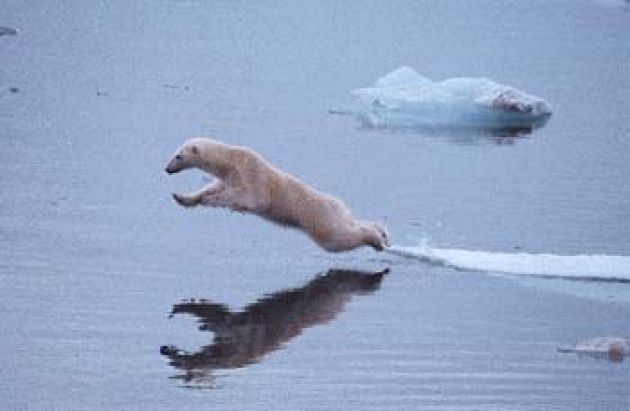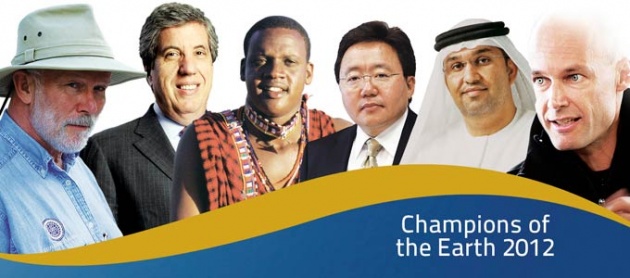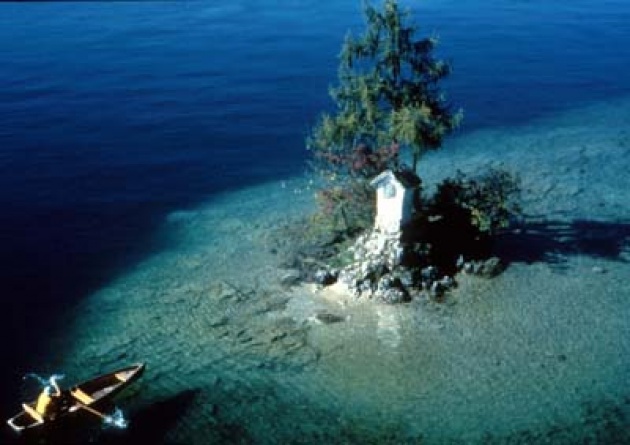
Mongolia’s President, Tsakhia Elbegdorj; Brazilian banker Fábio C. Barbosa; renewable energy entrepreneur Dr. Sultan Ahmed Al Jaber from the United Arab Emirates; Swiss aeronaut Dr. Bertrand Piccard; Dutch scientist Dr. Sander van der Leeuw; and Kenyan Maasai conservationist Samson Parashina were the winners of the 2012 Champions of the Earth. “As the world heads to Brazil for Rio+20 later this month, these six individuals, deservedly named as Champions, demonstrate that committed, concrete action can have a transformative effect on countries, communities and businesses,” said Achim Steiner, the Executive Director of the UN Environment Programme, which organizes the awards.

The LG Electronics-sponsored awards were presented at a ceremony in Rio de Janeiro, Brazil. According to UNEP, the winners have demonstrated commitment to building a sustainable future for the planet through their work, which encompasses active green policies, groundbreaking clean energy developments and community work that has helped conserve critical ecosystems. Below the honorees are listed outlining their achievements/contributions: Read Blog for Film & Connect to UNEP Champions of the Earth 2012.

"On the eve of Rio+20, the Champions of Earth 2012 should be an inspiration for world leaders to take the bold decisions needed on behalf of seven billion people. In other words, to put in place the pathways that will scale-up and accelerate a Green Economy while reforming the international institutions charged with realizing sustainable development and poverty eradication in order to deliver the ‘Future We Want’.”Past Champions of the Earth have included Mikhail Gorbachev, Al Gore, Felipe Calderon, Mohamed Nasheed, Marina Silva and Vinod Khosla.
Ambassador Muhamed Sacirbey - FOLOW mo @MuhamedSacirbey
Facebook-Become a Fan at “Diplomatically Incorrect”
Twitter – Follow us @DiplomaticallyX
See more at our Popular Video Blogs & Current News Event Articles – Ecology-Diplomat Channel

Rio, June 4 2012 - Mongolia's President Tsakhia Elbegdorj, Brazilian banker Fábio C. Barbosa and renewable energy entrepreneur Dr. Sultan Ahmed Al Jaber were among six winners of the United Nation's Champions of the Earth 2012 award, given to those whose actions and leadership have had a positive impact on the environment.
Further Resources
- UNEP Champions of the Earth
- The UN Conference on Sustainable Development 2012 (Rio+20)
- World Environment Day 2012
Renowned Swiss aeronaut Dr. Bertrand Piccard, Dutch Scientist Dr. Sander van der Leeuw and Kenyan Maasai conservationist Samson Parashina were also recognized for their achievements.
UN Under-Secretary General and UNEP Executive Director Achim Steiner presented the LG Electronics-sponsored awards at a ceremony in Rio, attended by UNEP Goodwill Ambassador Gisele Bündchen, Brazil's Minister of the Environment Izabella Teixeira and Rio+20 Secretary-General Sha Zukang.
The winners have demonstrated commitment to building a sustainable future for the planet through their work, which encompasses active green policies, groundbreaking clean energy developments and community work that has helped conserve critical ecosystems.
"As the world heads to Brazil for Rio+20 later this month these six individuals, deservedly named as Champions, demonstrate that committed, concrete action can have a transformative effect on countries, communities and businesses," said Mr. Steiner.
The full list of the 2012 Champions of the Earth is as follows:
· Policy Leadership: President Tsakhia Elbegdorj (Mongolia) for delivering on promises to put the environment at the forefront of policies.
· Entrepreneurial Vision: Fábio C. Barbosa (Brazil) and Dr. Sultan Ahmed Al Jaber (UAE) for their business efforts in sustainability and promoting renewable energy and clean technology respectively.
· Inspiration and Action: Dr. Bertrand Piccard (Switzerland) for raising global awareness of the possibilities of renewable energy-driven transport
· Science and Innovation: Dr. Sander Van der Leeuw (Netherlands) for his research, which applies lessons learned from history to understand why humanity is not facing up to the long-term issue of environmental change.
· Special Category: Grassroots Initiatives: Samson Parashina (Kenya) for leading community efforts to conserve Kenya's Tsavo-Amboseli ecosystem.
"On the eve of Rio+20, the Champions of Earth 2012 should be an inspiration for world leaders to take the bold decisions needed on behalf of seven billion people," Mr. Steiner said. "In other words, to put in place the pathways that will scale-up and accelerate a Green Economy while reforming the international institutions charged with realizing sustainable development and poverty eradication in order to deliver the Future We Want."
Mr. Elbegdorj, who has prioritized green policies and environmental awareness for youth, said his formative years as a herdsman living close to nature helped shape his sustainable outlook.
"This is a great honour, not only for me but for our nation," said Mr. Elbegdorj. "One day I will give up my Presidency ... but I will continue as a Champion of the Earth.
Dr. Sultan Ahmed Al Jaber, the Chief Executive Officer of Masdar, which is developing a pioneering low-carbon city in Abu Dhabi and investing globally in clean energy innovation and deployment, welcomed the award and called on the world to work together to face the challenge of climate change.
"The energy solutions the world needs today cannot be driven by one country alone," he said. "They will be stimulated by collaboration, and founded on public-private partnerships. As a global community, we have the responsibility to act collectively and address the challenges we face."
Mr. Parashina, whose Maasai Wilderness Conservation Trust (MWCT) takes a grassroots approach to conservation in Kenya, said the award "energized" him to push on with his work.
At a time where poaching of elephants and rhino is on the rise in Kenya, leading to deadly gun battles with wildlife rangers, Mr. Parashina's organization is using a community-led approach to prevent poaching through education and patrols. Mr. Parashina is also head guide at Campi ya Kanzi, started in 1996 by his long-term collaborators Luca Belpietro and Antonella Bonomi. The hotel was named by CNN as one of ten top luxury eco-hotels around the world.
Mr. Parashina was nominated for the award by actor Edward Norton, who serves on the board of MWCT and is the UN's Goodwill Ambassador for Biodiversity
"He's one of my heroes and I'm in this role to celebrate people like him," said Mr. Norton in his nomination. "The work he has achieved is nothing short of inspirational and a truly authentic example of an indigenous community addressing the sustainability question within the context of deep commitment to traditional cultural values."
Dr. van der Leeuw, winner in the Science and Innovation category, has spent his career studying human-environment relations and invention and innovation in society, applying the lessons learned from history to help understand why humanity is not facing up to the long-term issue of environmental change.
He said the award made him feel "more confident" about using his research to educate future generations about the need for sustainability.
"Sustainability is all about changing mindsets," he said. "It is about individuals, groups, and countries beginning to think differently about everything they do in life. We can actually make a huge difference."
The inclusion of Piccard, who with Brian Jones was the first to complete a non-stop balloon flight around the globe, marks the second year in a row that a Swiss who has circumnavigated the globe was included among the winners.
Last year, Louis Palmer who led a fleet of electric vehicles around the world in 80 days and earlier became the first person to circle the earth in a solar-powered vehicle, won the Inspiration and Action award. Piccard, 54, aims to become the first person to travel the circumference of the globe in a piloted fixed-wing aircraft using only solar power.
Champions of the Earth, which was launched in 2005, is the UN's flagship environmental award. To date, it has recognized 51 individuals and organizations for their leadership, vision, inspiration and action on the environment.
The list of previous Champions laureates include former US Vice President and Nobel Peace Prize winner Al Gore, Mexican President Felipe Calderon, Chinese actress and environmental advocate Zhou Xun, the Women's Environment & Development Organization (WEDO) and global music legend Angélique Kidjo.
Additional quotes
Fábio C. Barbosa: "I'm very proud and very honored to receive this award. I think it's a stimulus for all the people who helped me from day one, coming from nowhere, when the subject (sustainable business practices) was really not on the agenda of any major company - so it's recognition that is important, not for one action specifically, but for what was done over a certain period of time."
Dr. Sander van der Leeuw: "This Champion of the Earth award means a lot to me in many different ways. It means on the one hand, beyond the recognition and stimulus to go on with this research, that I can actually feel more confident about using these approaches in laying the basis for the sustainability education for the next generation."
Dr. Bertrand Piccard: "Exploration in the 21st century is no longer about conquering new territories, but about developing clean technologies in order to reduce our dependence on fossil fuels."
Samson Parashina: "This award means great things to me. It energizes me and enables me in the pursuit of the ideal that we stand for. The Maasai have been here for centuries. They have to adapt to a changing climate, by creating new green jobs and protect the flora and fauna to create a future for the generation to come."
Dr. Sultan Ahmed Al Jaber: "The UAE's environmental stewardship was instilled by our nation's founding father and president, the late Sheikh Zayed Bin Sultan Al Nahyan. He encouraged us to conserve our environment and preserve it for future generations. Today, safeguarding our environment and economic sustainability are at the core of the UAE's development plans. It is a great honour for me, Masdar, and the people of the UAE to be recognized for our efforts in fulfilling Sheikh Zayed's environmental legacy through this award.
Achim Steiner: "Each of these six winners has stood up to be counted - often in the face of opposition from those not championing change but championing the status quo. In doing so these winners have and continue to display the political will, fresh thinking and creative solutions for tackling the drivers of climate change, mobilizing communities to protect their ecosystems, taking uncompromising business decisions based on sustainability models or literally circling the globe to raise awareness of the need for clean energy."
2012 Champions of the Earth Winners' Profiles:
President of Mongolia, Tsakhia Elbegdorj
President Tsakhia Elbegdorj of Mongolia, who was among the leaders of the peaceful democratic revolution that ended communist rule in 1990, has realized his commitment to putting a green agenda at the forefront of policies since coming to power in 2009.
Elbegdorj has turned his attention to decreasing air pollution, triggered by over-population and coal usage, in Ulaanbaatar, the capital of Mongolia, through the submission of the Law on Decreasing the Capital City Air Pollution, which was approved by Parliament. In addition, the Mongolian government is establishing a satellite-city near Ulaanbaatar for the purposes of limiting coal-burning in the capital, transferring energy-saving technology, importing and increasing the use of thermal stoves, promoting population decentralization and imposing air-pollution tax in some regions of Ulaanbaatar.
In 2010, Elbegdorj suspended the issuance of all new mining licenses until fresh regulations were drawn up, citing the protection of the mineral-rich Asian country's environment and herdsmen's livelihoods. "Half of the territory is covered by exploration licenses. I think that's enough. We have to save our wealth (for) our next generation." he said in an interview in on the sidelines of a UN General Assembly.
He has enhanced youth understanding of environmental protection through a project that educates young Mongolian students on the impacts of climate change and the importance of environmental stewardship. In an effort to combat desertification, Elbegdorj declared the second Saturday of May and October "National Tree Planting Day" and appealed to individuals, communities and the private sector to make tree-planting a habit. Since 2011, over two million trees have been planted across Mongolia's vast desert regions.
Elbegdorj is also exploring ways to utilize solar power, especially in the sparsely populated Gobi region. According to the Mongolian Institute for Sustainable Economic Development, 70 per cent of the country has been classified as having high insolation (Incoming Solar Radiation) of 5.5-6.0 kWh/m2 per day, creating huge potential for solar power generation.
Since July 2011, Elbegdorj has been chairing the Community of Democracies, a grouping of countries that works to strengthen democratic norms and practices worldwide. In 2009, he was a member of the World Economic Forum's Global Agenda Council on Climate Change and has lectured on environmental protection abroad.
Fábio C. Barbosa, Brazil - Abril S.A. CEO
Mr. Barbosa is widely recognized as one of the earliest and most successful banking executives to integrate environmentally and socially conscious practices into his leadership.
He is based in São Paulo, Brazil, where he serves as Chief Executive Officer of Abril S.A., one of Latin America's largest and most influential media enterprises. Presently he is a member of Ayrton Senna Institute, a non-profit organization that researches and produces knowledge to improve the quality of education, and the Endeavor Enterprise Institute, an NGO that fosters entrepreneurship in Brazil. For 8 years, Barbosa was board member of Petrobrás.
He was previously President of the Board of Directors of Banco Santander Brasil, one of the largest banks in Brazil. His vision of a transparent financial market that supports societal aspirations led him to the presidency of the Brazilian Banks' Association (FEBRABAN). He also served for 12 years as President of Banco Real /ABN Amro in Brazil, before it was acquired by Santander.
As president of Banco Real, Mr. Barbosa introduced a transformative sustainability initiative that included social and environmental risk analysis, ethical investment funding, microcredit operations, and a diversity programme, which led the Financial Times to name the bank Sustainable Bank of the Year in 2007. Mr. Barbosa's initiative became the object of a study at Harvard and earned Banco Real other sustainability awards from the UN, the International Chamber of Commerce and The Prince of Wales International Business Leaders Forum.
Mr. Barbosa continues to be recognized for his efforts to integrate philanthropic and sustainable practices into business models. In 2010 he was named Leader of Social Change by the Foundation for Social Change in partnership with the UN, and in July 2011, the UN Foundation announced he had joined its Board of Directors.
"Fábio Barbosa has a proven record of bringing together leaders in the Western hemisphere, the business community and the people of Brazil to focus on global problems," said Ted Turner, Founder and Chairman of the UN Foundation's Board of Directors.
Dr. Sultan Ahmed Al Jaber, UAE - Masdar Chief Executive Officer and Managing Director
Dr. Sultan Ahmed Al Jaber is a leading business and political figure, championing the development and deployment of renewable energy and clean technology solutions.
In 2006, Dr. Al Jaber spearheaded the launch of Masdar, an Abu Dhabi-based commercial venture aimed at advancing clean energy to the forefront of the global power business. Through its investments, Masdar is deploying large-scale renewable energy projects in Abu Dhabi and across the globe, while encouraging the technology's adoption through smaller-scale aid projects in various countries, including Afghanistan, Tonga and Seychelles.
Amongst its flagship projects is Masdar City, a 6km2 low-carbon, low-waste development in Abu Dhabi, which employs cutting-edge sustainable urban planning and architectural practices while also testing advanced energy efficient building technologies and materials. Masdar City is already home of the Masdar Institute of Science and Technology campus-established in partnership with the Massachusetts Institute of Technology.
In 2009, Dr. Al Jaber coordinated and led Masdar's participation in the UAE's successful bid to host the headquarters of the International Renewable Energy Agency (IRENA) in Abu Dhabi. In the same year, he was invited by UN Secretary General Ban Ki-Moon to serve as a member of the UN Secretary General's Advisory Group on Energy and Climate Change (AGECC).
In 2010, Dr. Al Jaber was appointed UAE Special Envoy for Energy and Climate Change, where he is responsible for developing and advocating the UAE's position on international climate negotiations. In 2011, he was selected by the UN Secretary General to serve as a member of the High Level Group on Sustainable Energy for All.
Dr. Bertrand Piccard, Switzerland - Scientist-Explorer, Initiator of the Solar Impulse Program
Born into a dynasty of scientists who have explored the heights and depths of the planet, Bertrand Piccard achieved the first ever non-stop round-the-world balloon flight. An internationally renowned medical doctor and psychiatrist, aeronaut and lecturer, initiator of the Solar Impulse program, chairman of the Winds of Hope charitable foundation, and a UN goodwill ambassador, he combines science and adventure in order to address some of today's global challenges.
Passionate about all forms of flying since his childhood, he was one of the pioneers of hang gliding and microlight aviation in the 1970s. He then initiated the "Breitling Orbiter" project, which in 1999 achieved the first non-stop balloon flight around the globe, capturing the records for the longest flight in the history of aviation in terms of duration and distance.
Following a family tradition that combines scientific exploration, protection of the environment and the search for a better quality of life, Dr. Piccard came up with the vision of flying round the world in a solar aircraft. In 2010, the first prototype managed to remain airborne night and day without fuel, powered by solar energy alone.
A pioneer, explorer and an innovator who operates outside the customary certainties and stereotypes, Dr. Piccard is first and foremost a visionary and a communicator. His stated goal is to demonstrate that progress is possible using clean technologies. As chairman of Solar Impulse, he has developed the project's avant-garde philosophy and defined its symbolic reach in order to convince governments to launch much more ambitious energy policies. He shares control of this enterprise with his partner André Borschberg, just as he takes turns with him at the controls of the solar aircraft.
Dr. Sander van der Leeuw, Netherlands
Dr. Van der Leeuw has spent his career studying human-environment relations and invention and innovation in society, applying the lessons learned from history to help understand why humanity is not facing up to the long-term issue of environmental change.
He works at Arizona State University as Dean of the School of Sustainability and Foundation Professor at the School of Human Evolution and Social Change. An archaeologist and medieval historian by training, Dr. Van der Leeuw has studied ancient technologies, ancient and modern man-land relationships, and Complex Systems Theory. He has done archaeological fieldwork in Syria, Holland, and France, and conducted ethno-archaeological studies in the Near East, the Philippines and Mexico.
He coordinated a series of trans-disciplinary research projects on socio-natural interactions and modern environmental problems in the countries of the Northern Mediterranean rim (ARCHAEOMEDES I and II and others, 1991-2000). Among these were studies aimed at understanding and modelling the natural and anthropogenic causes of desertification, land degradation and land abandonment, as well as the interaction between towns and countryside. These projects were the first to choose the Complex Adaptive Systems approach to help solve 'hairy' problems such as these.
More recently, he has been studying the phenomenon of innovation. The Information Society as a Complex System (ISCOM, 2003-2006) project investigated the relationship between innovation and urban dynamics. With an extensive research team, he investigated how invention occurs, what the preconditions are, how the context influences it, and its role in society. He is currently involved in applying Complex Systems approaches to the study of this phenomenon in the United States, and in particular in Phoenix.
In July 2001, he was appointed Secretary-General of the French National Council for the Coordination of the Humanities and Social Sciences. This was followed by an appointment as Deputy Director at the National Institute for the Sciences of the Universe and for Social Sciences at the CNRS (2002-2003) in France, in charge of a program similar to the Long-Term Ecological Research programme in the US.
Prior to his current roles, he taught at Leyden (1972-1976), Amsterdam (1976-1985), Cambridge (UK; 1985-1995) and Paris (Panthéon-Sorbonne; 1995-2003). His publications include 17 books and over 120 papers and articles on archaeology, ancient technologies, socio-environmental and sustainability issues, as well as invention and innovation. He is an external professor of the Santa Fe Institute, a corresponding member of the Royal Dutch Academy of Sciences and an emeritus Chair of the Institut Universitaire de France.
Samson Parashina, Kenya
Samson Parashina, a Maasai warrior, son of a local chief and respected safari guide, has shown amazing commitment to developing sustainable green economy models for Kenya's Kuku Group Ranch, land communally owned by the Maasai community.
Parashina started as a waiter at an ecotourism lodge, but swiftly rose to become the President of the Maasai Wilderness Conservation Trust (MWCT) - a grass-roots community trust preserving the wilderness, wildlife and cultural heritage of the Tsavo-Amboseli ecosystem. The ecosystem is recognized for its high biodiversity, significant tourism revenues and as a vital watershed providing freshwater to millions of Kenyans. Three national parks - Tsavo, Amboseli and Chyulu Hills - lie within a human-dominated landscape and the overall health of this ecosystem is reliant on the sustainable management of the lands between the protected areas by the local communities that own them.
The trust's success has taken its profile global, with actor Edward Norton, the UN's Goodwill Ambassador for Biodiversity, a board member. Parashina, Norton and two other Maasai completed the 2009 New York marathon to raise awareness and funding for the trust.
Under Parashina's strong leadership, the community agreed to appoint MWCT as the community's manager of natural resources. The trust ensures that the community is protected through sustainable management of their natural resources, protecting the long-term viability of the ecosystem and traditional community livelihoods.
The trust, which employs over 200 locals and has an annual budget of over US$1 million, is developing sustainable financing mechanisms and partnering with Conservation International and Wildlife Works to carry out a REDD+ carbon feasibility study. MWCT is also coordinating a landmark collaboration to protect the Chyulu Forest-Mizima Springs watershed, which provides fresh water for millions of Kenyans. Finally, in an area where human-wildlife conflicts are a major problem, MWCT is pioneering a model where tourism surcharges are used to fund Wildlife Pays, a programme that compensates livestock herders for losses to wildlife predation in exchange for full protection of predators.
About LG Electronics
LG Electronics, Inc. is a global leader and technology innovator in consumer electronics, mobile communications, home appliances and home climate control. With global sales reaching $US49 billion in 2011, LG's stylish designs, smart technologies and reliable products are an investment in the future.
As a leading corporate citizen, LG Electronics believes that it has an obligation to its customers and the next generation to reduce its impact on the environment. Since first announcing its environmental vision in 1994, LG Electronics has been practicing environmental management and reducing its environmental impact throughout the whole business life-cycle - from collecting raw materials to the eventual disposal of products.
As the strategic partner for Champions of the Earth since 2010, LG has shown commitment to promoting environmental awareness worldwide. Along with Champions of the Earth, LG endeavors to help foster greater environmental activism and concrete action toward global green growth.
LG supports sustainable growth for the company, its employees, partners and the planet. The company sees its ultimate goal as using innovation to deliver on people's needs in order to enrich lives and ultimately provide a better environment for the next generation.
For more information, please contact:
Nick Nuttall, UNEP Division of Communication and Public Information Acting Director and Spokesperson, Tel. +41 795 965 737 or +254 733 632 755 , Brazil local number: (11) 6593 8058 , e-mail: nick.nuttall@unep.org
UNEP Newsdesk (Nairobi), on Tel. +254 20 762 5211 or e-mailunepnewsdesk@unep.org



